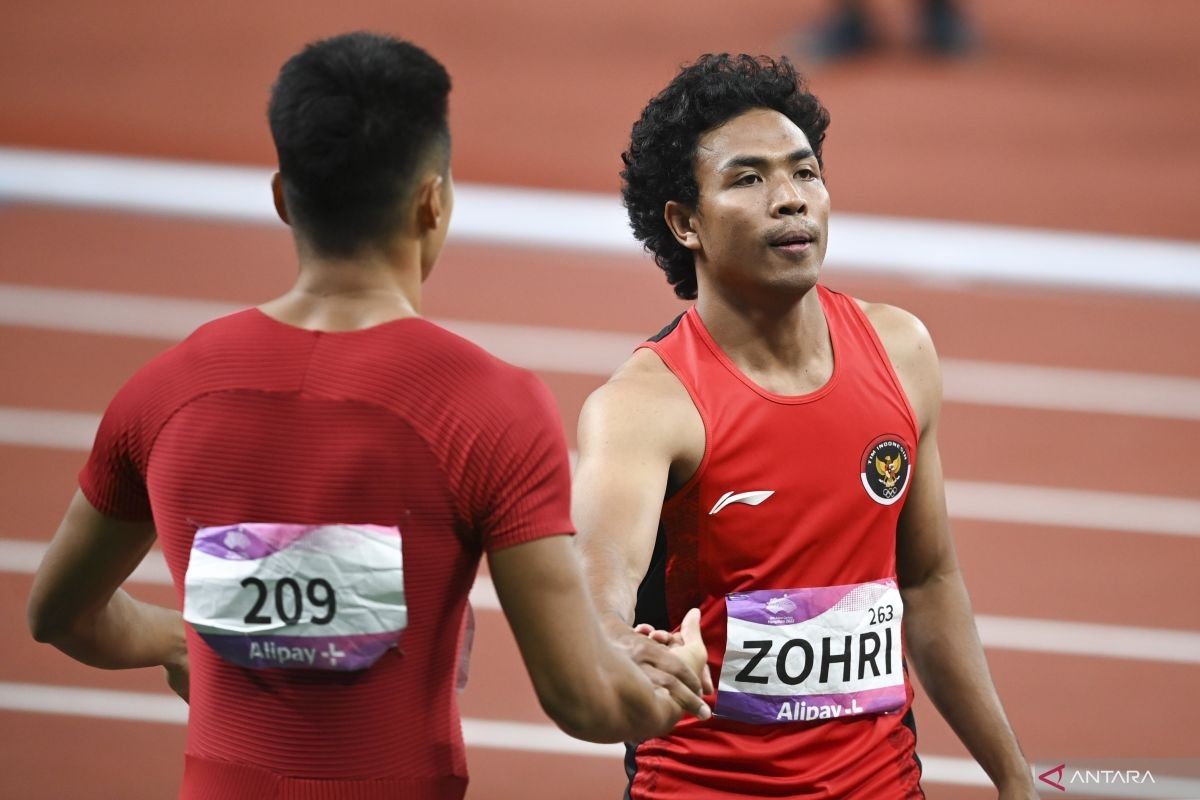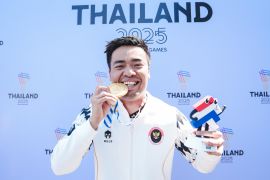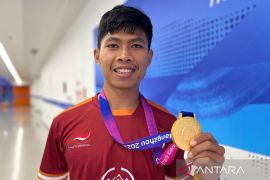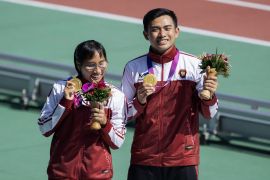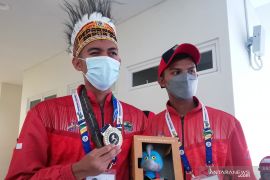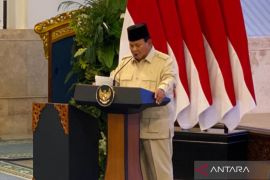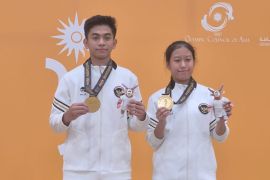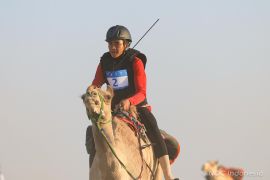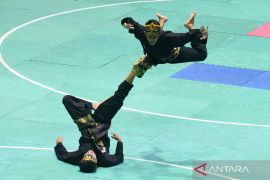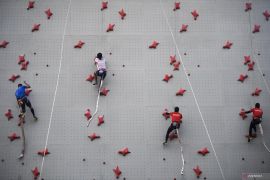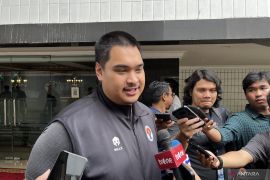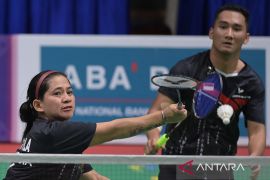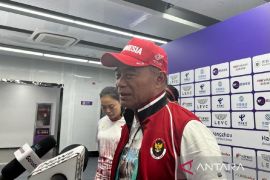Amidst the cheers of a home crowd at the then Senayan Main Stadium (now Gelora Bung Karno Main Stadium), Sarengat sprinted as fast as light through the 100-meter track, reaching the finish line first with a time of 10.4 seconds.
In the same edition, he also bagged the gold medal from the 110m hurdles event with a time of 14.3 seconds.
Since then, Sarengat was dubbed "the fastest runner in Asia", a title that cemented Indonesia's dominance in running at the Asian level.
The athlete's outstanding achievements then inspired younger athletes, like Purnomo Muhammad Yudhi, to follow in his footsteps.
His participation in the 1984 Los Angeles Olympics marked a milestone for Yudhi and Indonesia as he managed to advance to the men's 100m semi-final.
After Yudhi, there were more bright sprinters who emerged from Indonesia, such as Afdiharto Mardi Lestari from Binjai, North Sumatra; Suryo Agung Wibowo from Solo, Central Java; and the latest one, Lalu Muhammad Zohri from Lombok, West Nusa Tenggara, who represented Indonesia in the 2024 Paris Olympics.
Many achievements have been made in various championships, but in the Asian Games, no Indonesian runner has been able to accomplish what Sarengat has achieved.
The Executive Board of the Indonesian Athletics Association (PB PASI) acknowledged that achieving success at the Asian Games is a crucial step before targeting the Olympics.
Restoring Indonesia's glory on the Asian stage is not an easy matter. In the modern sports era, all countries are striving to prepare the best athletes, and Indonesia certainly does not want to stand still as a spectator.
Better achievements
Indonesia's athletics have repeatedly recorded achievements at the regional level in the SEA Games.
In the 2023 SEA Games in Cambodia, Indonesia's athletics team bagged 19 medals, comprising seven gold medals, three silver medals, and nine bronze medals.
Most of the gold medals were won in running events, namely in men's 10,000m by Rikki Simbolon, 4x100 meters relay by Lalu Muhammad Zohri, Wahyu Setiawan, Bayu Kertanegara, and Sudirman Hadi, and both the men's and women's marathon, by Agus Prayoga and Odekta Naibaho.
Meanwhile, the other gold medals were contributed by Abdul Hafiz in the javelin throw, Maria Natalia Londa in the long jump, and Hendro Yap in the 20-kilometer race walk.
These achievements have reassured PB PASI that it is time for Indonesia's athletics to target a higher level, namely Asia.
PB PASI Chairperson Luhut Binsar Pandjaitan has firmly emphasized that Indonesia is making the Asian Games a benchmark for athletics.
Since there is only one year left until the next Asian Games, which will be held in Japan, preparations have focused on several athletics events in which Indonesia has a better chance to win.
Strategic steps to achieve glory have been prepared. In addition to focusing on athletic events with a higher chance of winning, the development of athlete training centers is also underway.
Currently, there are two athletics training centers that are already operating, namely the Pangalengan Athletics Training Center in West Java and the Mimika Athletics Stadium in Papua. PB PASI is also currently developing a more modern training center in North Sumatra, which is targeted to be completed by 2026.
In addition to the physical facilities, a sports science approach is also adopted in the athletes' training program, which is expected to allow athletes' skill development to be monitored all the time and be measurable.
Achievements at the Asian Games are a major goal that has been set by PB PASI for athletes and coaches in the national training program.
Zohri, who is Indonesia's current ace, acknowledged that the Asian Games is the gate towards the Olympic podium. He is learning a lot from his experience to improve his performance in the training center.
Though the Asian Games are the main target for Zohri, he does not consider smaller-scale competitions, including the National Athletics Competition, as mere warm-ups, but actual competitions that he must win.
With the intensive training and experience of participating in various competitions, as well as a near-complete recovery from his injury, the athlete, who previously won gold at ASEAN University Games (AUG) 2024, is optimistic that he could secure achievements at the Asian level.
"Asian Games are the main goal, so I have to be ready to compete, even for the Olympics," he remarked.
Dina Aulia, the new national record holder in the women's 100-meter hurdles with a time of 13.11 seconds, also has the same optimism.
The centralized training in Pangalengan has solidified Aulia's determination to leave her mark at the Asian Games.
The athlete, who was raised in South Kalimantan, is currently preparing herself for the World Athletics Championships and the 2025 SEA Games in Thailand in December.
For her, these championships are stepping stones on the long journey towards Asian-level achievements.
With all the resources and athlete training on deck, what is left to do is to prove that Indonesia can continue Sarengat's legacy in the Asian Games.
Related news: New athletic training center in North Sumatra to operate in 2026
Related news: Asian Games remains primary target for athletic achievements: Luhut
Related news: Free Health Check-ups help identify young athletic talent
Translator: Aloysius Lewokeda, Raka Adji
Editor: Azis Kurmala
Copyright © ANTARA 2025
